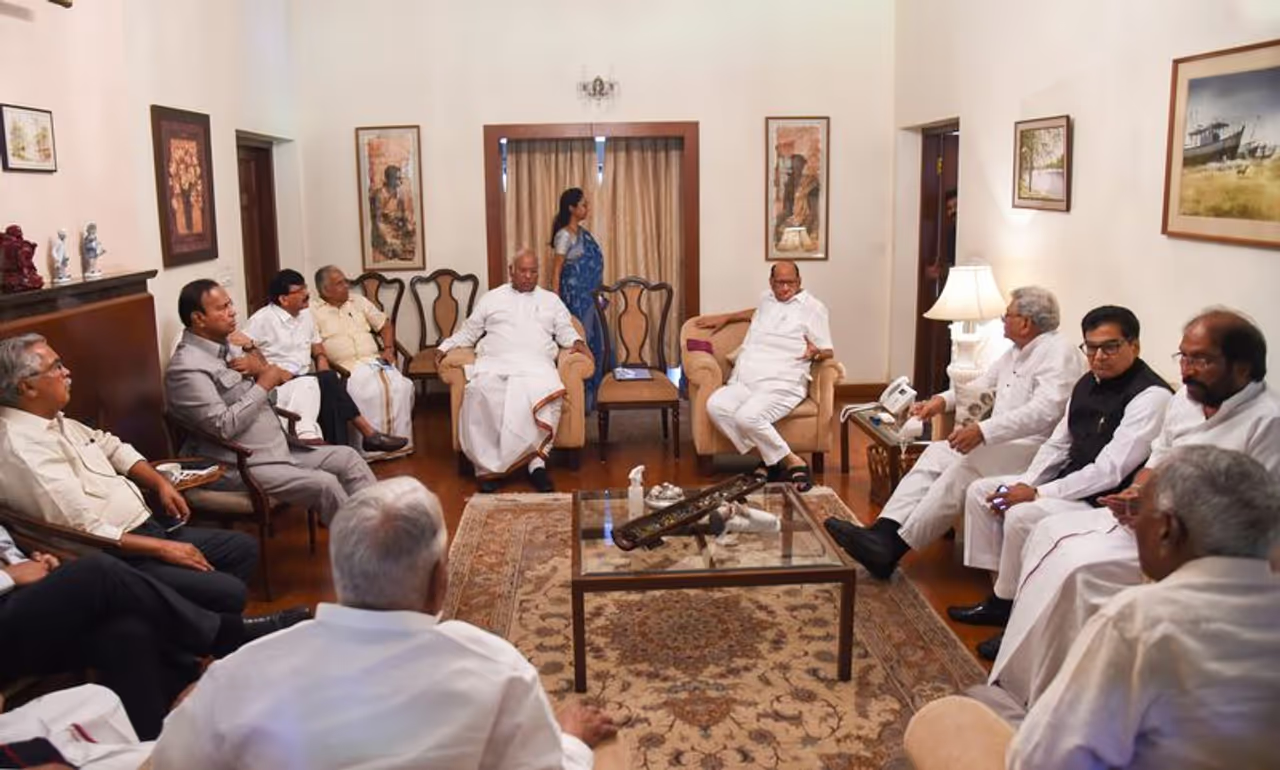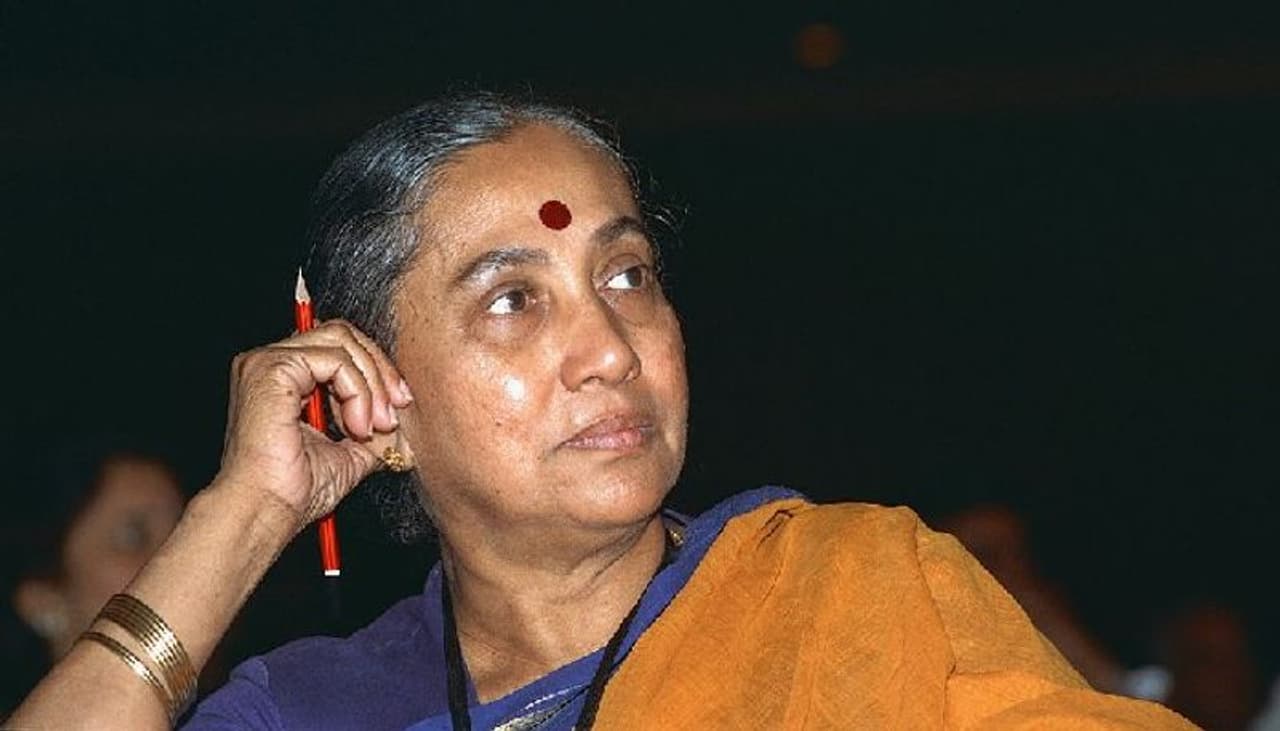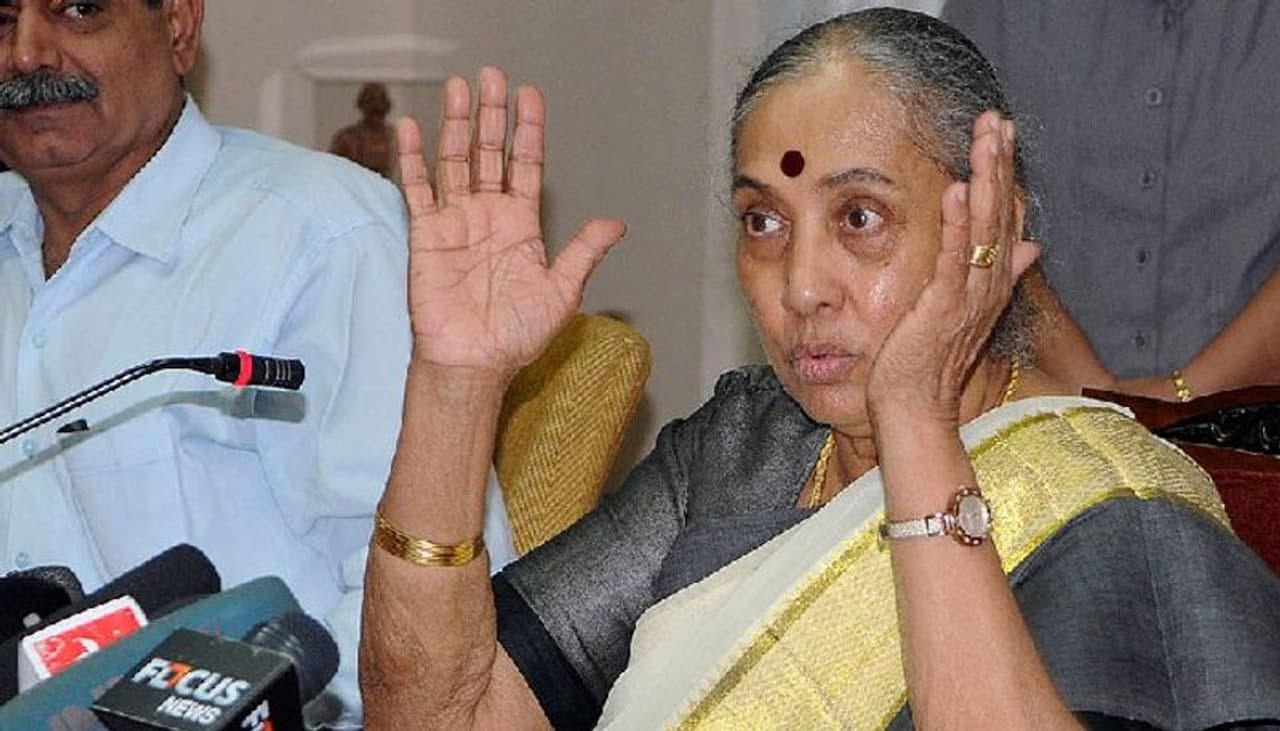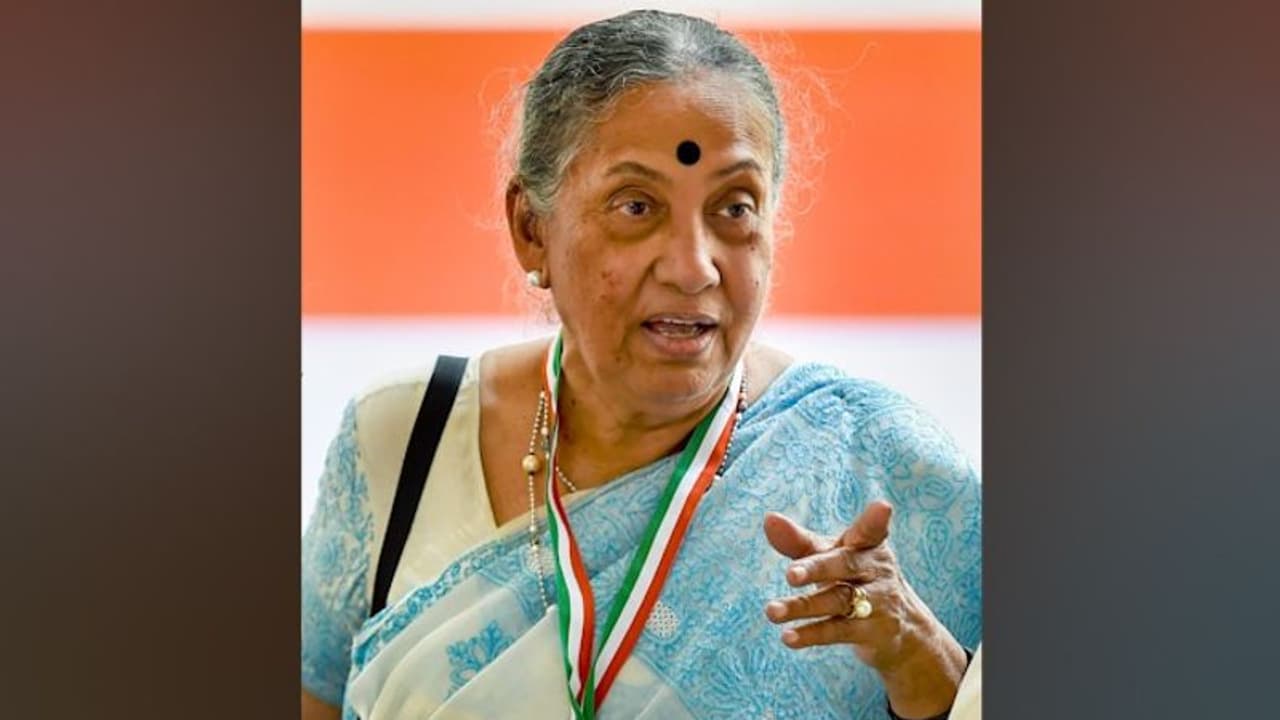NCP supremo Sharad Pawar announces former governor Margaret Alva will be joint Opposition's vice presidential candidate; says 17 parties are on board for this unanimous decision.
Opposition parties on Sunday decided to field former Rajasthan Governor Margaret Alva as their joint candidate for the Vice presidential election. 80-year-old Alva is expected to file her nomination papers on Tuesday, the last date for filing nominations for the August 6 election.

The NDA has fielded West Bengal Governor Jagdeep Dhankar as its joint candidate for the Vice President post. The decision to field Alva was taken at a meeting of opposition leaders of 17 parties at the residence of NCP supremo Sharad Pawar.
"We have unanimously decided to field Margaret Alva as our joint candidate for the post of Vice President," Pawar announced after the two-hour meeting. "Our collective thinking is Alva will file VP nomination on Tuesday," he added.
He said a total of 17 parties have unanimously taken the decision to field her, and with the support of Trinamool Congress and Aam Aadmi Party, she will be the joint candidate of a total of 19 parties.
"We are trying to contact Mamata Banerjee and Arvind Kejriwal. Last time they supported our joint presidential candidate," he said, adding that even JMM is together with opposition parties in this election. Meanwhile, Shiv Sena's Sanjay Raut said, "We are all together in this election".

All about Margaret Alva's early life, education, family
Born Margaret Nazareth on April 14, 1942, in Mangalore, Karnataka, she obtained a BA from Bangalore's Mount Carmel College. Also, she pursued a degree in law from Government Law College in the same city.
She married Niranjan Thomas Alva on May 24 1964, with whom she has one daughter and three sons, including Niret Alva. The couple met as students at Government Law College, and her husband now operates a thriving export business.
According to reports, Margaret Alva's net worth is expected to be between 3 million to 5 million dollars.
Alva's decision to enter politics in 1969 was strongly influenced by her husband and father-in-law, Joachim Alva, and his wife, Violet Alva, being Members of Parliament representing the Indian National Congress.
She joined the Indira Gandhi-led Congress (Indira) group and worked for the party's Karnataka state chapter. Between 1975 and 1977, she was the Joint Secretary of the All India Congress Committee. Between 1978 and 1980, she held the position of General Secretary of the Karnataka Pradesh Congress Committee.

Positions Margaret Alva occupied and key responsibilities
In April 1974, Alva was elected to the Rajya Sabha as a representative of Congress. After completing a six-year term, she was elected to three further terms of six years, beginning in 1980, 1986, and 1992.
She held the positions of Union Minister of State in the ministries of Parliamentary Affairs (1984–85), Youth and Sports, and Women and Child Development during her service in the Rajya Sabha (1983–85). She also participated in several House committees, gained significant procedural knowledge, and temporarily served as the Minister for Science and Technology.
Between 1985 to 1989, Alva served as the HRD director for the 28-point plan developed by the Rajiv Gandhi administration to advance the participation and rights of women and children. She also advocated for more prominence for women in politics and her party's official positions, albeit only a few suggestions for various women's development businesses came to fruition.
Her 1989 proposal that 33 per cent of seats in panchayat raj (local government) elections should be reserved for women became law in 1993 and, according to Laura Jenkins, "marked a further shift from the former abhorrence of reservations as a nationally divisive policy".
While serving as Minister of State for Personnel, Public Grievances, Pensions, and Parliamentary Affairs (1991 and 1993–1996), she continued to work to improve the status of women. During this time, she tried to increase the number of women holding office in various government agencies and organisations, including the Union Public Service Commission and the judiciary.
Alva was chosen to represent the Uttara Kannada seat in the 13th Lok Sabha and was given a five-year term. In 2004, she ran for reelection but was unsuccessful. She worked with freshly elected parliamentary representatives at the national and state levels as the General Secretary of the All India Congress Committee between 2004 and 2009. She served as a consultant for the Bureau of Parliamentary Studies & Training.
Also read: 'We respect Droupadi Murmu but will vote for Yashwant Sinha,' announces AAP

Margaret Alva's Governorships
Alva said in November 2008 that the Karnataka elections for Congress seats were accessible to bidders rather than subject to a meritocratic selection process. Congress refuted her allegations, and after a meeting with Sonia Gandhi, the party's leader, Alva resigned or lost her several official positions inside the organisation.
Alva afterwards made up her differences with the Congress leadership. She has declined to go into details of the 2008 controversy even as her resignation letter continues to be a subject of media speculation.
Alva was elected as Uttarakhand's first female governor on August 6, 2009. She held the position until May 2012, when she was appointed Governor of Rajasthan, a more significant region in terms of politics.
Shivraj Patil, the governor of Punjab, was freed of his interim adjunct duties for that state following the passing of the then-governor, Prabha Rau, in April 2010. Shivraj Patil then relocated to Rajasthan.
(With inputs from PTI)
